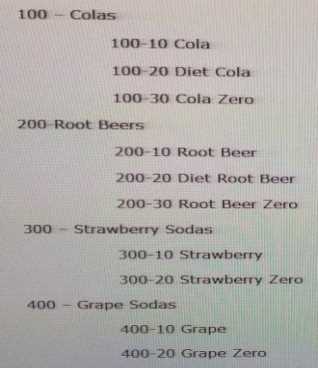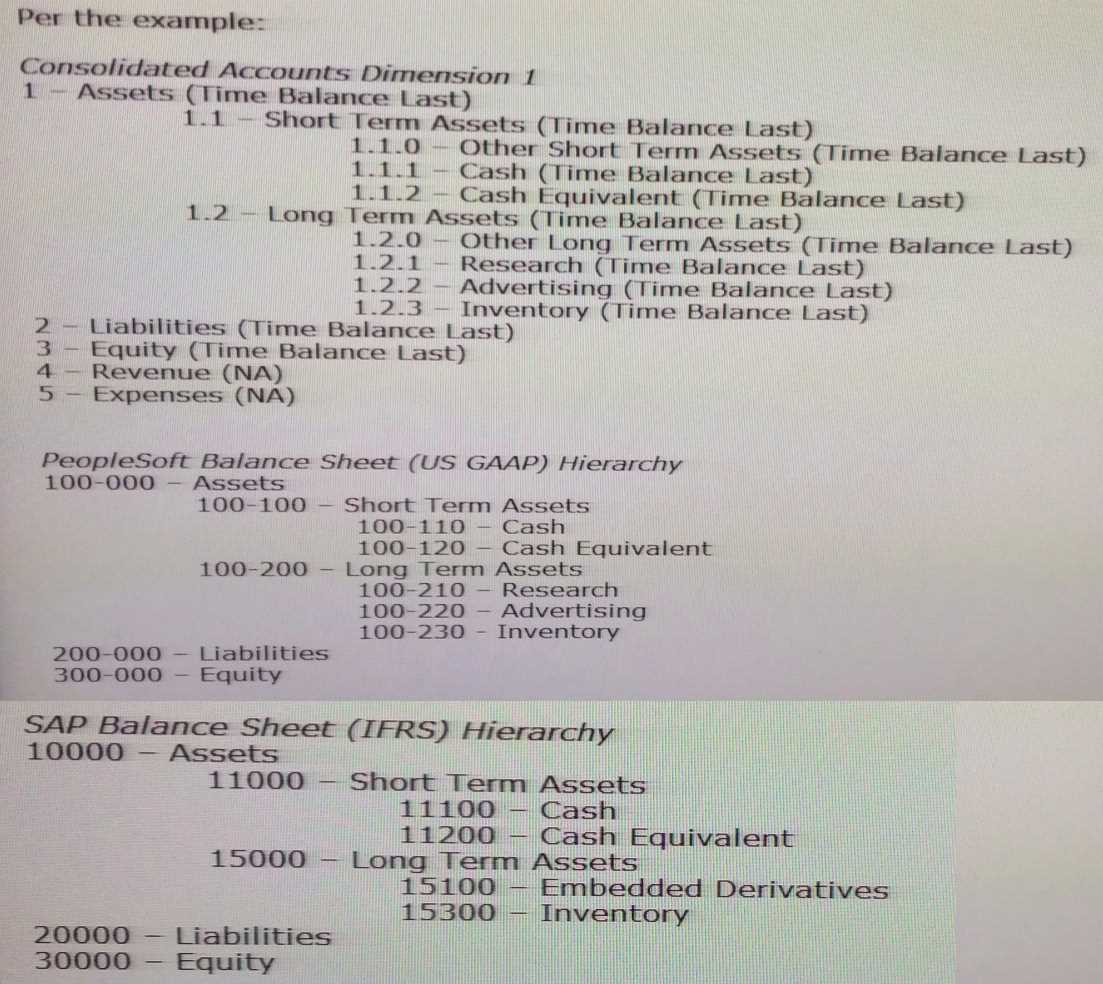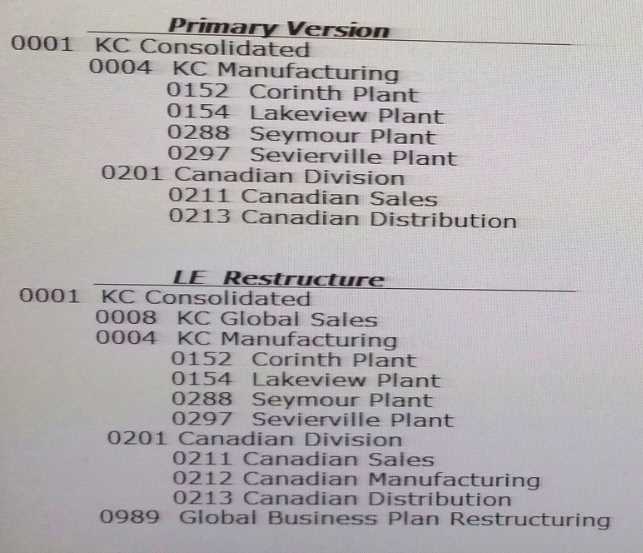oracle 1Z0-588 Exam Questions
Questions for the 1Z0-588 were updated on : Jul 20 ,2024
Page 1 out of 5. Viewing questions 1-15 out of 73
Question 1
Per the following example:
All Products
A user is assigned to two node access group, G_Colas and G_Diet Cola. G_Colas is assigned Add
permission for the Colas node in the product hierarchy and the G_Diet Cola group is assigned I dit
permission for the Diet Cola node.
He is assigned the Interactive User role. Identify the three true statements.
- A. The user can add new nodes into the Product category under the "Colas" node.
- B. The user can edit the Diet Cola node only.
- C. The user can delete nodes under the "Colas'* node.
- D. The user only sees the "Diet Cola" node in the Product hierarchy.
- E. The user cannot delete nodes under the "Colas" node.
- F. The user may inactivate nodes under the "Colas" node.
Answer:
B, C, D
Question 2
You want an import to stop if a duplicate node is found. How do you do this?
- A. Set the duplicate error mode to Generate Error and Max Errors count to 0.
- B. Set the Unique String value to "Error" in the Duplicate Handling options.
- C. Create a validation to find duplicates that runs after the import is processed.
- D. Make sure that the EnableSharedNodes property is set to False.
- E. Choose the option to skip Duplicate Members.
Answer:
B
Question 3
Acme Corporation just finished the initial DRM data load. The files were sourced from several
different applications and some of the data files required manual modification.
Identify potential data quality issues found when reviewing the data loaded into DRM
- A. Property values are substantially different from the stated and documented business rules.
- B. The user does not have access to run an import.
- C. A failure in enforcing unique values for specific properties.
- D. Duplicate nodes within each hierarchy.
- E. Duplicate nodes across hierarchies.
Answer:
C
Question 4
Your operations group is in the middle of a large re-organization of the Entity dimension. You create
versions at the end of each closed month on the fifth work day. Business users have access to update
the Entity hierarchy within the working version to add new cost centers and move cost centers
beginning on the seventh business day. Your CFO is reguesting the complete chart of accounts
hierarchy as of the 15th day of the month.
How can you deliver the CFO's request assuming the "AllowAsOf system preference has been set to
True?
- A. Use the Copy feature for versions and enter the "As Of" date.
- B. Use the "As Of" feature and enter the "As Of" date.
- C. Use the Copy feature and then use the transaction history to back out changes made since the desired date.
- D. Rebuild the hierarchy from a backup.
- E. Use the Copy feature for the hierarchy and enter the "As Of" date.
Answer:
C
Question 5
Select the four valid reasons why you would create a different version.
- A. To maintain monthly versions
- B. To maintain versions for major reorganization
- C. To apply security for different hierarchies
- D. To allow multiple people to simultaneously work on the same data
- E. For "What If" modeling for a hierarchy
- F. To create property categories that are specific to a version
- G. For historical comparisons
Answer:
D, E, F, G
Question 6
You have built a validation to ensure that a hierarchy has no more than 20,000 nodes. What is the
correct validation level?
- A. Node
- B. Hierarchy
- C. Version
- D. Global Node
- E. Global Hierarchy
- F. Merge
Answer:
D
Question 7
Identify the three true statements about version types.
- A. A normal version type is a version that can be edited and its status changed.
- B. Baseline version is a copy of a normal version at the time that it was created.
- C. Finalized versions can never have their status changed.
- D. An "As Of" version is a historical view of a normal version based on a date or transaction ID.
- E. You may change the status of an "As Of version.
Answer:
A
Question 8
Which filters can you apply to narrow the transaction history results when searching the transaction
history?
- A. Specific transaction ID
- B. Specific user ID
- C. Apply a Max Records number
- D. Loss changes, which includes activity that was lost due to computer crash or failure
- E. Action Description
- F. From and/or To values
- G. Node Description
Answer:
E
Question 9

Your organization has two ERPs: PeopleSoft (PS) and SAP. Each ERP has its own chart of accounts.
Each chart of accounts is mapped to a consolidated chart of accounts. The Finance department
maintains the consolidated account hierarchy, For both the SAP and PS account properties, users
should be able to select from a drop-down list the correct accounts that should be mapped to the
consolidated account. Many SAP or PS accounts could be mapped to a single consolidated account.
What property type should you set for the SAP Account Property and PS Account Property, assuming
that you have built the SAP and PS chart of account hierarchies in DRM?
- A. Lookup
- B. List
- C. AscNodes
- D. AscNode
- E. RangeList
Answer:
B
Question 10
Identify two reasons to build validations using derived properties vs. validations using property
queries?
- A. View the results of the validation logic as a property value.
- B. Validations do not support property queries for batch.
- C. Provides faster performance of validation process
- D. You can import the initial validation setting to the property.
- E. Formulas can be used to perform complex logic.
Answer:
DE
Question 11
Identify the three true statements about Workflow in DRM.
- A. Change requests are stored in a draft state for approval.
- B. Change requests are validated against a version and committed to the draft version.
- C. Change requests pending approval cannot be changes until the change has been approved.
- D. Change requests are committed to a version once the request is approved.
- E. Workflow is exposed through the API.
Answer:
ACD
Question 12
A department may only have 10 cost centers. How can you address this requirement?
- A. Security
- B. Validation rule
- C. Filter
- D. Node Type
- E. Property query
Answer:
C
Question 13
Identify the three true statements.
- A. A version may contain multiple hierarchies.
- B. A version may contain a single hierarchy with shared nodes.
- C. A version may contain version-specific node types.
- D. A version may be assigned validations.
- E. A version may be assigned exports.
Answer:
ABC
Question 14
Choose the three valid prebuilt system rules within DRM.
- A. Name must be unique.
- B. Description must be unique.
- C. Cannot add nodes below a node tagged "Leaf"
- D. If a property is set to "inherited" and a value does not exist, DRM looks to the closest ancestor for the property value.
- E. If a property is set to "inherited" and a value does exist, the value is inherited to only the node's children.
Answer:
CDE
Question 15
"Primary" and "LE_Restructure" are both versions in your DRM application and both have a hierarchy
named "Legal Entity".
The nodes and structure of each hierarchy are as follows:
Select the nodes that would be included in a Structure Compare for Differences.
- A. 0008 KC Global Sales
- B. 0989 Global Business Plan Restructuring
- C. 0201 Canadian Division
- D. 000l KC Consolidated
- E. 0154 Lakeview Plant
- F. 0212 Canadian Manufacturing
Answer:
B